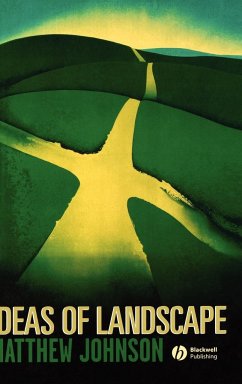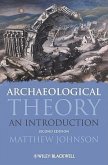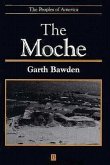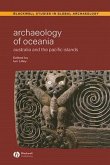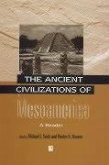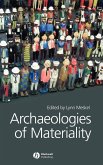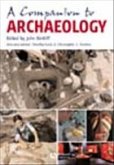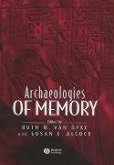Ideas of Landscape offers an engaging discussion of the theory and practice of landscape archaeology today. Drawing on his local experience, Matthew Johnson focuses on the so-called English landscape tradition and discusses why it is so distinctive: it stands at some distance from North American and other approaches, in which "theory" plays a more prominent role. Johnson identifies the origins of this tradition in English Romanticism, through the influence of the "father of landscape history" W.G. Hoskins among others, and argues that the strengths and weaknesses of landscape archaeology can be traced back to the underlying theoretical discontents of the Romantic movement. He offers an alternative agenda, which maps more closely on to the established empirical strengths of landscape study and is more relevant both to the thrust of interdisciplinary landscape studies and to contemporary social concerns. Passionately and accessibly written, this engaging book takes up a crucial strand in archaeological thinking and examines it critically for the first time.
"I have always found Johnson's work ... extremelyinviting, engaging and thoughtful. Ideas of Landscape is noexception." (Cambridge Archaeological Journal, October 2008)
"One might suggest that in this excellent work, Johnsonhas written an archaeology of knowledge concerning landscapestudies. A glossary and illustrations add meaningfully to a work ofmuch industry ... Highly recommended."(Choice)
"Ideas of Landscape is a toweringcontribution--shall we say, a high vantage point from which onecan
survey a scholarly landscape?" (Canadian Journal ofArchaeology)
"I read Matthew Johnson's Ideas of Landscape (Blackwell)with intense interest. It discusses the theory and practice oflandscape archaeology and the Romantic English landscape tradition,boldly taking on received opinion about figures such as Wordsworthand WG Hoskins, and making us think hard about what we can knowabout the past, why we want to know it, and how we may be misledabout it. It's an original, informative, and well-argued work,accessible to the general reader, and both worrying andilluminating."
-Margaret Drabble, Times Literary Supplement
"Ideas of Landscape is a challenging and accessiblecontribution to an expanding theoretical and historical field.Mobilizing the English topographical tradition of scholarship,centred on the writings of W.G. Hoskins, the book positions acritical understanding of landscape, as both culturalrepresentation and physical reality, at the centre of the study ofthe past and its meanings in the present."
-Stephen Daniels, Professor of Cultural Geography,University of Nottingham
"Matthew Johnson writes an archaeology of knowledge forlandscape studies. He enables us to know what to study next byknowing how the field was formed and the mistakes its practitionersmade. Both a deconstruction and a forecast, Johnson's volume rankswith the new books on race by Orser, on colonialism by Schrire, andwith his own foundational An Archaeology of Capitalism. Withthese books historical archaeology is mature."
-Mark P. Leone, Professor of Anthropology, University ofMaryland
"One might suggest that in this excellent work, Johnsonhas written an archaeology of knowledge concerning landscapestudies. A glossary and illustrations add meaningfully to a work ofmuch industry ... Highly recommended."(Choice)
"Ideas of Landscape is a toweringcontribution--shall we say, a high vantage point from which onecan
survey a scholarly landscape?" (Canadian Journal ofArchaeology)
"I read Matthew Johnson's Ideas of Landscape (Blackwell)with intense interest. It discusses the theory and practice oflandscape archaeology and the Romantic English landscape tradition,boldly taking on received opinion about figures such as Wordsworthand WG Hoskins, and making us think hard about what we can knowabout the past, why we want to know it, and how we may be misledabout it. It's an original, informative, and well-argued work,accessible to the general reader, and both worrying andilluminating."
-Margaret Drabble, Times Literary Supplement
"Ideas of Landscape is a challenging and accessiblecontribution to an expanding theoretical and historical field.Mobilizing the English topographical tradition of scholarship,centred on the writings of W.G. Hoskins, the book positions acritical understanding of landscape, as both culturalrepresentation and physical reality, at the centre of the study ofthe past and its meanings in the present."
-Stephen Daniels, Professor of Cultural Geography,University of Nottingham
"Matthew Johnson writes an archaeology of knowledge forlandscape studies. He enables us to know what to study next byknowing how the field was formed and the mistakes its practitionersmade. Both a deconstruction and a forecast, Johnson's volume rankswith the new books on race by Orser, on colonialism by Schrire, andwith his own foundational An Archaeology of Capitalism. Withthese books historical archaeology is mature."
-Mark P. Leone, Professor of Anthropology, University ofMaryland

